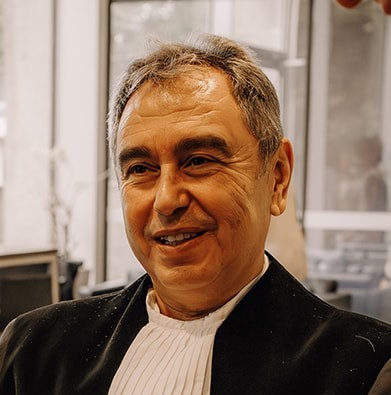Kutlay Yagmur, Department of Culture Studies, Tilburg University, the Netherlands

Professor Kutlay Yagmur is an educational linguist interested in cultural diversity, inclusion, multilingualism and school achievement. Specializing in sociolinguistics, his research seeks to shed light on the linguistic, cultural, social, and intercultural outcomes of language contact. He published extensively on language maintenance and shift, acculturation orientations of immigrants, bilingualism, and school achievement as well as multilingualism. Yagmur's recent research focuses on diversity and social inclusion from a policy perspective. He is particularly interested in the formulation and enactment of multilingual policies in the European context. He is an advocate of unity in diversity principle. Together with several PhD candidates, Yagmur investigates the links between parents, schools, language policies, multilingual children and the teachers. Family language policy among parents in different communities and teachers' attitudes towards multilingualism is his current research project, the outcomes of which will be published by Palgrave Macmillan in 2025.
Title
Promoting diversity policies in higher education: Aims of inclusive education programs in the Netherlands
Abstract
Like all other Western European countries, the Netherlands is experiencing a strong demographic change in its population structure. The native population is not growing and to be able to maintain economic growth and sustain the current welfare, the country needs new immigrants each year. In the 1970’s and 80’s, immigrant workers were identified as ‘guest workers’ but they have their fourth-generation descendants now. This brings its challenges as well as opportunities. Educational institutions must find ways to deal with linguistic diversity. Monolingual approaches to education and training does not always achieve good outcomes for multilingual school populations. Majority of students coming from an immigration heritage are mostly streamed into lower schooling tracks, such as vocational education. Besides, the school failure among students from an immigration background is larger compared to native Dutch students. As a consequence, unemployment among immigrants is larger and the country cannot benefit from the diversity of talents available in the country. In my talk, I am going to address these societally crucial issues in two parts. In the first part of my talk, I will explain the causes of lower school achievement among students from an immigration heritage by presenting some statistical data. Because the problems in primary and secondary education are not addressed effectively, the inflow of students into higher education institutions is limited. In the second part of my talk, in line with inclusive education goals, I will present the measures taken by higher education institutions and the Dutch Science Foundation to empower youth coming from an immigration heritage. Policy makers at the Ministry of Education and Dutch Science Foundation realized that for growth and sustainability, Dutch higher education needs to make use of available diversity of talents. I will explain the aims and results of the MOSAIC program empowering young people from an immigration heritage. In the last part of my talk, I will briefly talk about NUFFIC, the Dutch organization for internationalization in education. NUFFIC promotes international cooperation to provide support and guidance for students from diverse backgrounds. Finally, I will present some information on how the Open University of the Netherlands (OUNL) supports individuals from immigrant backgrounds. By means of inclusive policies, OUNL commits resources to make higher education accessible for people coming from diverse backgrounds.




